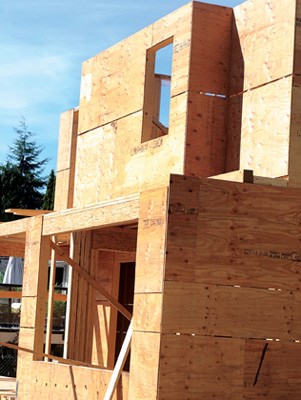WITHIN new home construction one of the most misunderstood matters of business is the area of insurance.
For many of us, conversations centred around liability, deductibles and indemnification are invitations to the sweet Land of Nod; however, insurance is an undeniably crucial component of building a new home.
Regardless of personal bent, it is vital for all the members of the project team (homeowner, contractor, subcontractor, architect, engineer) to educate themselves on the layers of responsibility (and resulting myriad policy types) involved in their specific build.
Above all, it is essential for the homeowner to remember that he is ultimately financially responsible for anything that happens on his property, warns Gord Thompson of gtinsurance.ca. This isn't to say that the homeowner is on the hook for the quality of the contractor's workmanship, but it does mean that he has a highly
vested interest to understand how to protect himself.
During the initial stage of pre-construction (when the land waits patiently for design and permitting), the property owner holds site liability insurance. Once site preparation begins (see my stages of construction checklist from two weeks ago), the owner continues with her site liability insurance and the contractor and subcontractors hold general liability insurance. The general liability insurance covers for bodily injury, property damage or personal injury occurring during the contractor's operations and on completed operations. This creates overlap with WorkSafeBC coverage (that must be held by every contractor and subcontractor working on a project) onto which the homeowner must be added as an additional insured party.
At the point that the site is fully prepped and footing/foundation framing is about to begin, course of construction insurance must start. This policy will run throughout the project, past lockup until full completion, and protects against any direct physical loss to the building under construction. It covers construction materials stored on and offsite, as well as those in transit. The limit of insurance must be 100 per cent of the cost to rebuild the finished structure, and it's important to note their common clause invalidating the policy if no work is done for 30 days. A course of construction policy can be initiated by either the property owner or the builder; however, the cost of the policy, as well as the ultimate financial responsibility should inadequate coverage exist, are borne by the property owner. Upon completion of the project, the course of construction converts to standard home insurance held by the owner.
From Gord Thompson's years of experience, he warns of what he sees to be the most common mistakes that property owners building their own homes make: n Not notifying the insurer about plans to build a new home: many home insurance policies can be extended to new construction n Not starting the insurance until after the home is framed: insurers will charge back to the date
framing for foundations started, meaning no savings by delaying the coverage. (Fire hazard is highest in the period before the drywall and fire rated materials are installed.) n Failure to clearly identify who is responsible for initiating the course of construction insurance Not obtaining proof of insurance from contractors. The homeowner should make sure she is named as an additional insured to all contractors liability policies. This proves to the homeowner that the contractor has insurance, and protects her from claims arising from the contractor's negligence (to other parties).
n Not getting WorkSafeBC certificates from all contractors: failure to do so could make the homeowner financially responsible if a worker becomes injured on the job n Not budgeting for the insurance costs which are higher than normal home insurance Dalit Holzman is a team-member at Econ Group Construction. Find her at dalit@econgroup.ca or econgroup.ca.
News Photo Paul Mcgrath / HOMEOWNERS are ultimately financially responsible for anything that happens on their property.;



